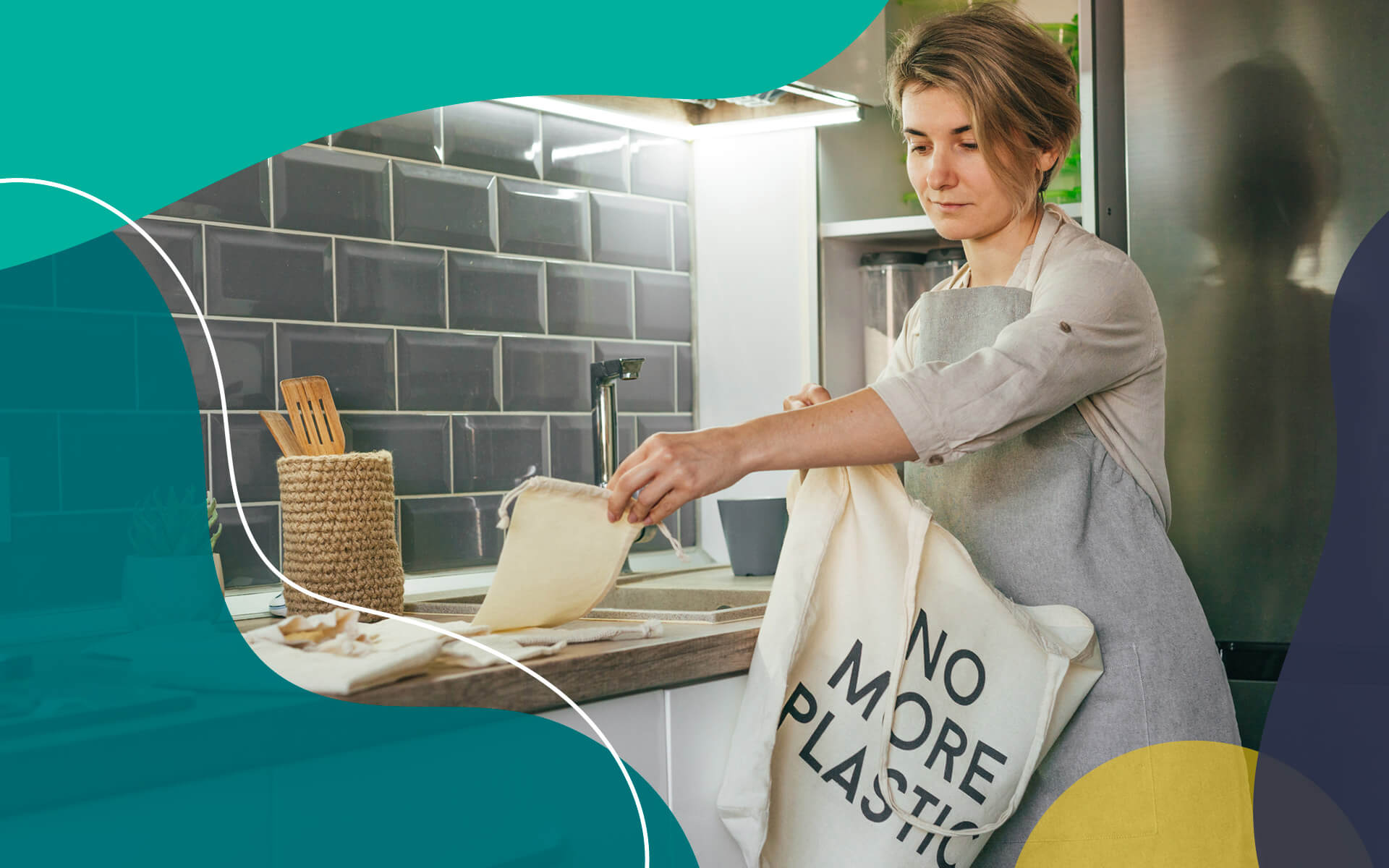
Body + Mind is reader-supported. We may earn an affiliate commission when you buy through some of the links on our site.
Taking care of Mother Earth is everyone’s responsibility. Human health and the planet are intricately linked — increasing pollution puts millions at risk of chronic conditions. If you’re wondering how to improve environmental sustainability in your life, here are nine tips to get you started.
If grocery stores where you live still use plastic bags, please get in the habit of carrying cloth models with you. While it’s inconclusive whether there will be more plastic than fish in the ocean by the year 2050, the estimate is science-based. There’s no doubt that wildlife ingests the stuff, often leading to a slow and painful death.
When selecting products, look for those with the least amount of packaging. Say no to the plastic straw at the drive-thru — you can find reusable metal ones that clip to your keychain, keeping them handy.
Do you dread cleaning out your refrigerator because of the amount of food waste? It makes sense to buy in bulk if you have a household of hungry teenagers, but if you have a smaller family, see if shopping more frequently cuts down on what you toss.
Invest in the right containers to keep your items fresher for longer. Glass jars protect your cereal from going stale, and drawer liners can prevent wilted lettuce.
If you aren’t friends with the vendors at your local farmer’s market yet, it’s time to make some new pals. If you are on a tight budget, try going at the end of the day. While it isn’t considered common practice to haggle in the United States, sellers often prefer to offload tomatoes than take them home to rot.
The produce at your grocery store has to travel miles by truck, sometimes plane, to reach shelves. Conversely, items at the market come from small local farms.
If you live in a rural area, you may have little choice but to order much of what you need online. All that shipping can produce tons of carbon emissions.
Why not create a shipping circle with your closest friends and family, even your neighbors? Try creating a master list of what you all need to order and place it in bulk. You can divide shipping costs — or the price of a Prime membership — and save considerable carbon emissions.
Your home’s HVAC system is one of the biggest energy users. You want to keep your family comfortable without burning unnecessary fossil fuels.
Ceiling fans use a fraction of the energy of your home’s air conditioner. Learn how to adjust the blade direction in summer and winter to maximize your home’s efficiency.
Do you want your home to smell like rainfall in the forest? If so, you are better off soaking some pinecones in essential oils than relying on a spray can.
Many air fresheners emit over 100 toxic chemicals, including volatile organic compounds like limonene and beta-pinene. That “tropical breeze” could damage you or your family’s lungs.
To clean your indoor air, open your windows and run your home’s attic fan to increase circulation. Put citrus peels through your garbage disposal to banish funk and invest in an essential oil diffuser if you need fragrance.
Do you want to improve your environmental sustainability while getting in better shape? Whenever feasible, walk or ride your bike to commute instead of starting your engines.
If you hesitate to bike to work because steep hills leave you sweaty, consider investing in an electric bike. When pedal power gets too much, you can switch to an engine that uses far fewer resources than a car.
If you own your home, you still have time to take advantage of tax credits for upgrading to solar. However, you need to act quickly, as they expire in 2022 unless Congress renews them.
Even if you rent, you can get into solar power with portable panels that you take with you when you move. You might not be able to fuel your entire apartment, but you can cut your electric bill while improving your environmental sustainability.
Take a look around your room. All that stuff represents the hours of your life you spent laboring to get it. Was it worth it?
Every time you make an impulse purchase, you contribute to waste. You don’t have to Kon-Mari your abode, but you can increase sustainability by embracing minimalist principles. Before you buy something on a whim, identify something you are willing to give up (besides money) to have it. Practicing one-in-one-out living makes you reflect before purchasing something that will only gather dust and end up in the landfill.
Human health and that of the planet are intimately entwined, and taking care of the earth is everyone’s job. Learn how you can improve your environmental sustainability with these nine tips.